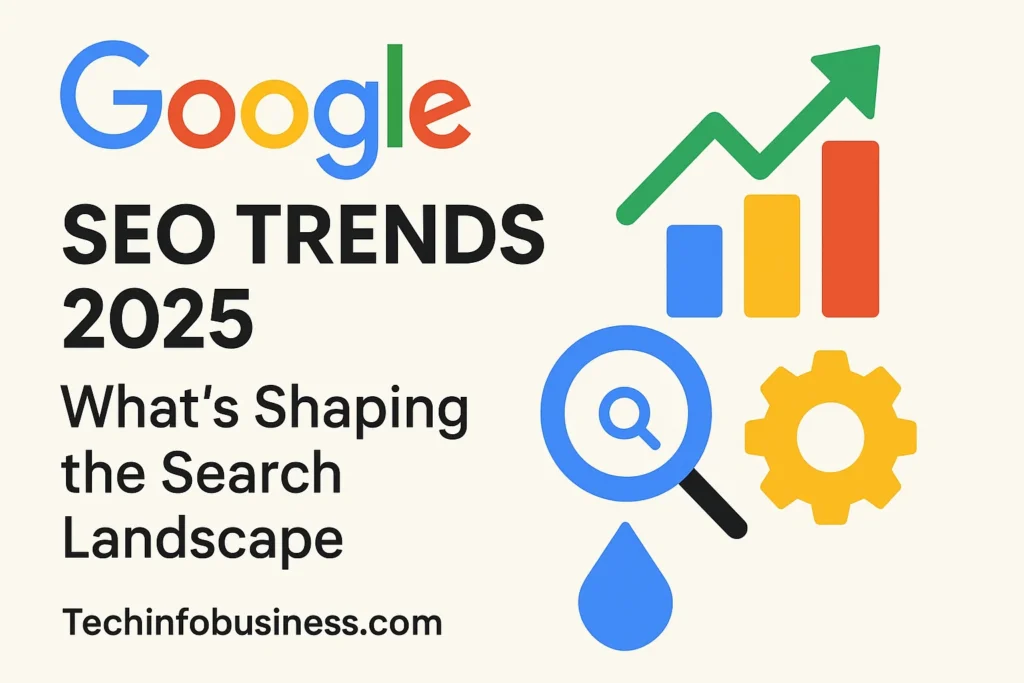Search engine optimization has never been a static game. Each year, new algorithm updates, shifts in user behavior and changes in technology reshape how websites rank on Google. In 2025, businesses and marketers face another evolutionary leap in SEO and those who adapt will thrive in a search ecosystem that’s more intelligent, user-focused and intent-driven than ever before.
The Era of AI-Driven Search
Google’s integration of AI into search continues to accelerate, with tools like Search Generative Experience (SGE) already redefining how users engage with results. Traditional keyword-based rankings are losing ground to contextual relevance and content that answers complex, multi-part queries.
Search no longer stops at “best pizza near me” now users expect results like, “What’s the healthiest gluten-free pizza I can get delivered within 30 minutes?” To rank for these nuanced queries, your SEO strategy must align with Google’s shift toward semantic understanding.
The seo bazooka blog recently highlighted this trend, emphasizing how structured content and natural language usage can dramatically improve ranking performance in AI-driven search results.
E-E-A-T & Brand Authority
Google’s emphasis on Experience, Expertise, Authoritativeness and Trustworthiness (E-E-A-T) continues to shape how content is evaluated, especially in industries like health, finance and law. In 2025, the “Experience” factor carries more weight than ever before. Real-world testimonials, firsthand knowledge and practical walk-throughs can now outperform generic informational content.
For example, a how-to article about home solar panel installation written by a certified electrician will outperform a generalist blog even if both pieces have similar backlinks and keyword optimization.
Brands must showcase their credentials, link content creators to verified bios and build backlinks from trusted niche authorities. This is where tools like SEO Bazooka excel by helping creators analyze content gaps and reinforce E-E-A-T signals across their digital ecosystem.
Voice & Visual Search Are Growing
The shift toward mobile-first indexing was just the beginning. Today, voice and visual searches are becoming default entry points for users especially with the rise of smart speakers and AI-integrated apps.
In 2025, Google Lens usage has grown dramatically and voice search queries are more conversational than ever. If your site doesn’t cater to “spoken language” SEO and image recognition optimization, you’re missing significant traffic.
This means long-tail queries, question-based content and alt-text optimization are no longer optional. Schema markup plays a bigger role here, helping Google understand context and improving visibility in voice or visual search.
Topical Authority Outranks Domain Authority
While backlinks remain an element of SEO success, Google is now prioritizing websites that demonstrate topical authority depth and consistency within a specific subject area.
You no longer need to chase hundreds of backlinks from unrelated domains. Instead, building a library of interlinked, high-quality articles on a niche topic can give your site a massive boost. The SEO community refers to this as a “content cluster” or “topic silo” approach.
The seo bazooka blog breaks down this method with case studies that show how even newer domains can outperform older competitors by drilling deep into one area of expertise rather than spreading content too thin.
Zero-Click Searches & Featured Snippets
More users are finding their answers directly on the search results page. Google’s increased use of featured snippets, knowledge panels and direct answers means many searches no longer lead to a click.
This may feel discouraging, but ranking for zero-click features can still offer immense brand exposure. To do this effectively, websites need to format content clearly using bullet points, tables, short definitions and headers that make it easy for Google to extract information.
An added bonus? Featured snippets often get voice search exposure too.
Mobile UX & Core Web Vitals
Speed, interactivity and stability remain crucial. Google’s Page Experience signals, especially Core Web Vitals, still heavily influence rankings.
Sites that load quickly, are mobile-responsive, and minimize layout shifts score higher in the mobile-first index. This year, Google has emphasized the “Interaction to Next Paint” (INP) metric, which measures how quickly users can interact with a page.
Neglecting this area isn’t just bad for SEO it drives users away. Whether you’re an ecommerce platform or a personal blog, ensuring seamless performance across devices is non-negotiable.
Video Content Integration
Google increasingly prioritizes video content, especially in niches like how-to guides, product reviews and tutorials. Embedding YouTube videos or hosting branded video content that complements written content improves dwell time and signals relevance.
You don’t need Hollywood-level production. Authentic, informative videos especially if hosted on your own YouTube channel can elevate your SEO profile. YouTube is the second-largest search engine after Google and there’s tight integration between the two platforms.
When paired with keyword-rich transcripts and optimized metadata, videos become an indispensable SEO asset.
The Future of Backlinks: Quality > Quantity
While backlink-building remains a core SEO function, strategies have evolved. In 2025, spammy directories and random guest posts on unrelated domains provide minimal impact. Instead, editorial mentions from respected sources within your industry are the gold standard.
Earning these backlinks depends more on producing exceptional content and less on outreach gimmicks. Collaborations, interviews and co-authored resources can drive natural links that stand the test of algorithm updates.
Platforms like SEO Bazooka are incorporating AI to assess backlink quality in real-time, helping users identify which opportunities are truly worth pursuing.
Embracing Continuous SEO Education
Search optimization isn’t a set-and-forget task. Google rolls out core updates multiple times a year, often unannounced and those who don’t adapt quickly can lose rankings overnight.
Staying informed through resources like the seo bazooka blog provides marketers and business owners with timely insights into what’s working now, not what worked two years ago.
Whether it’s algorithm impact breakdowns, tool reviews or ranking experiments, tapping into a trusted educational platform ensures your SEO strategy evolves in lockstep with Google’s search intelligence.
Read More: Top-Notch SEO Services Singapore for Online Success
Final Thoughts
As 2025 progresses, success in search will be shaped not just by technical skills but by the ability to match content to user intent, leverage emerging technologies and build true authority in a focused niche. Tools like SEO Bazooka make it easier to stay ahead of these shifts by offering data-driven guidance for content, backlinking and on-page optimization.
If you’re not already experimenting with voice optimization, visual search cues and AI-compatible content structures, now is the time to pivot. SEO isn’t dying, it’s just getting smarter.



